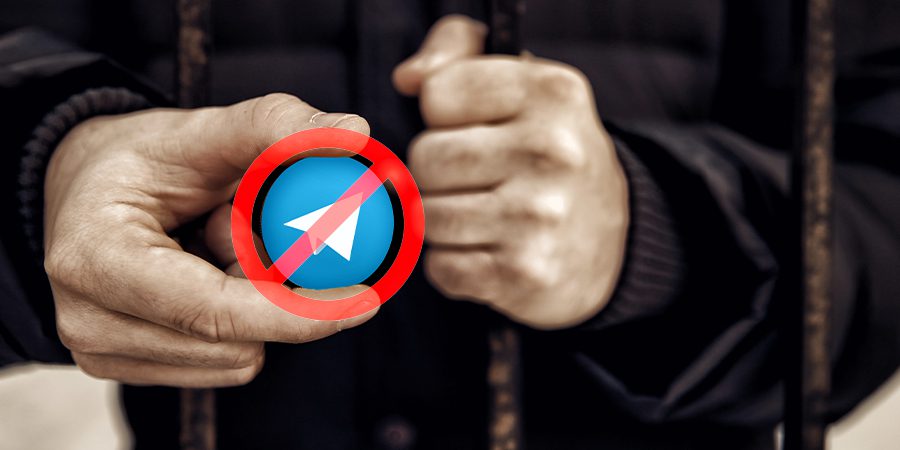In this article, we delve into the recent events surrounding the ban on Telegram in Brazil, the reasons behind the ban, and the subsequent lifting of the ban by a federal judge.
Despite the removal of the ban, the company still faces a daily fine for failing to comply with a court order.
Key Takeaways:
- Nationwide ban on Telegram lifted by a federal judge in Brazil.
- Telegram still required to pay a daily fine of $200,000 for not providing requested data.
- Original ban imposed due to Telegram’s failure to share data on neo-Nazi groups accused of inciting violence.
- This is not the first time the messaging app has faced a temporary ban in Brazil.
- Despite lifting the ban, the judge maintains that technology companies must understand that cyberspace cannot be a free territory.
The Lifting of the Nationwide Ban
In a surprising turn of events, a Brazilian federal appeals court lifted the country-wide ban on Telegram that had been put in place earlier this week.
Judge Flávio Lucas deemed that a complete suspension of the popular messaging app was not reasonable, as thousands of people in Brazil rely on the platform for their communication needs.
With the ban lifted, Brazilian users can once again access Telegram for their daily interactions.
Daily Fine Remains in Place
Although the nationwide ban has been removed, Telegram is not entirely off the hook.
The business must pay a penalty of $200,000 each day because they did not give the data the local government asked for.
This penalty serves as a reminder that the company must cooperate with law enforcement agencies and adhere to the country’s laws and regulations.
Reasons Behind the Ban
Apple and Google were instructed by a federal court to temporarily take down the Telegram service from their app stores in response to a ban that was initially imposed.
This drastic measure was taken after Brazilian authorities accused Telegram of not handing over a full set of data on two neo-Nazi groups on the app, which were allegedly inciting violence against schools.
According to reports, a teenager accused of committing two school shootings in November was involved with these groups.
Authorities claim they discovered Nazi content, violent videos, and bomb-making instructions being shared in the group chats.
According to reports, when Telegram didn’t follow the court’s first order, the company said that they had removed the two groups and couldn’t retrieve the information that was asked for.
Previous Bans and Issues in Brazil
This is not the first time that Telegram has faced temporary suspension in Brazil.
The top court of the nation halted the usage of an application in 2022. The reason behind this was that the app didn’t freeze the accounts which were blamed for spreading false information before the recent presidential election.
That ban, similar to the current one, was lifted just days later.
Telegram’s ongoing legal struggles in Brazil underscore the challenges that technology companies face when navigating the complex web of regulations and privacy concerns in the country.
Importance of Regulating Cyberspace
The recent events involving Telegram in Brazil bring attention to the crucial matter of regulating cyberspace.
While technology companies like Telegram strive to protect user privacy and promote free speech, there must be a balance between these values and ensuring public safety.
According to Judge Flávio Lucas, lifting the Telegram ban, technology companies must recognize that the internet cannot be an unregulated space with its own set of rules controlled by those who profit from it.
In the wake of a wave of school attacks in Brazil, the federal government has sought to curb school violence with a particular focus on the influence of social media.
Their objective is to stop future occurrences by making platforms accountable for not deleting material that supposedly encourages violent behavior.
Earlier this month, President Luiz Inácio Lula da Silva gathered with his Cabinet ministers, Supreme Court justices, governors, and mayors to talk about how to control social media sites. This shows that the government is taking a certain approach towards social media regulation.
Telegram’s experience in Brazil is not unique.
In the past, some governments like Iran, China, and Russia have prevented people from using the messaging app.
Despite the Kremlin’s strict rules on freedom of speech and censorship towards Western media after the invasion of Ukraine, Pavel Durov, the creator and CEO of Telegram, has been able to maintain a working relationship with the Russian government.
So-called “patriotic” hackers loyal to the Kremlin use Telegram to organize cyberattacks on Ukrainian and NATO targets.
On the other hand, the platform is also used by those fighting back against such attacks.
Security researchers and intelligence agencies regularly monitor specific Telegram groups, focusing on ransomware gangs, cybercriminals, disinformation purveyors, terror groups, and others inciting violence.
The case of Telegram in Brazil sheds light on the broader issue of striking a balance between user privacy, freedom of speech, and public safety in the digital age.
As technology continues to advance and social media platforms become more integrated into our daily lives, governments around the world will need to find ways to regulate cyberspace effectively without infringing upon individual rights.
Conclusion
The telegram ban in Brazil and its subsequent lifting highlight the ongoing struggle between technology companies and government authorities.
Although the lifting of the ban is a relief for many Brazilian users, the imposition of a daily fine emphasizes the need for companies like Telegram to cooperate with law enforcement to maintain a safe cyberspace.
This situation serves as a reminder of the importance of regulating social media platforms to prevent the spread of harmful content and incitement to violence.
As the digital landscape continues to evolve, it is crucial for governments, technology companies, and individuals alike to work together to create a safe and balanced online environment.
 Sections of this topic
Sections of this topic
















